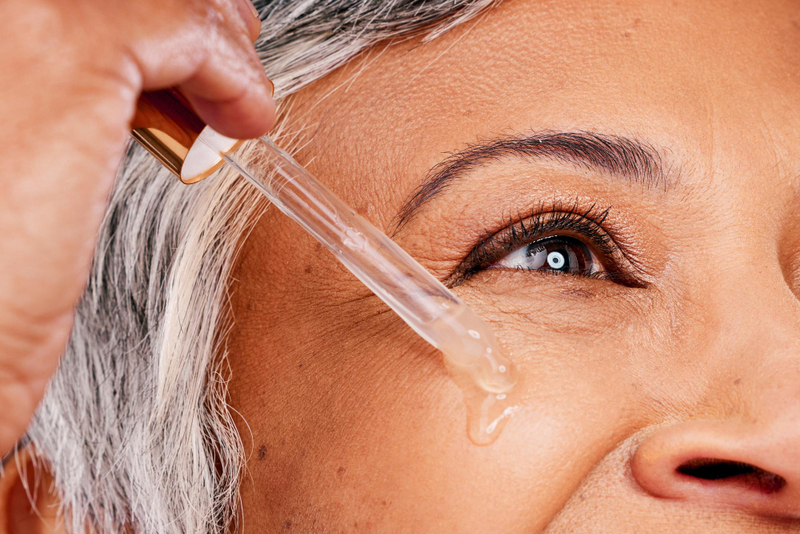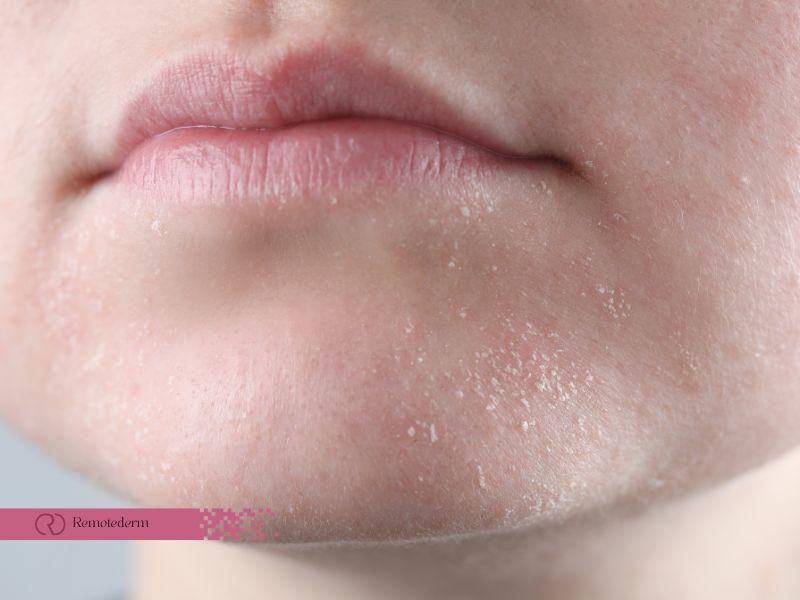Sensitive skin is a delicate canvas that requires special attention and care. In this extensive guide, we will explore the intricacies of sensitive skin, providing insights into identification, treatment, and the path to achieving a radiant and healthy complexion. Get ready to embark on a journey of transformation as we delve into the world of sensitive skin, unraveling the secrets to soothing, healing, and unlocking the glow within—right here in Canada.
Unveiling the Mysteries of Sensitive Skin
Sensitive skin can feel like an enigma for many, leaving individuals in Canada questioning the causes of their skin’s reactivity and seeking solutions that provide relief without aggravation. With a wide spectrum of skin sensitivity, pinpointing specific needs and appropriate care is critical. Below, we navigate the telltale signs of sensitive skin, demystify the use of powerhouse ingredients, and identify the safest hydration strategies to embrace delicate complexions.
How to Know If You Have Sensitive Skin
Understanding your skin is the foundation of effective skincare. If you frequently experience redness, itching, or a stinging sensation after using common skincare products, your skin may be sensitive. Take note of these reactions and consider seeking professional advice from a dermatologist to determine the best course of action for your unique skin type.
Can Retinol Be Used on Sensitive Skin?
Retinol, renowned for its anti-aging properties, can be a game-changer in skincare. However, for individuals with sensitive skin, approaching retinol requires caution. Patch-testing is crucial, and introducing retinol gradually into your routine is advisable. Always consult with a dermatologist before incorporating this potent ingredient to ensure it aligns with your skin’s needs.

Best Moisturizer for Dry, Sensitive Skin
Choosing an appropriate moisturizer is paramount for sensitive skin. Opt for products with gentle, hypoallergenic formulations. Key ingredients such as hyaluronic acid, glycerin, and ceramides provide much-needed hydration without irritating. Prioritize patch-testing for new products and opt for fragrance-free options to minimize the risk of adverse reactions.
The skin is an intricate organ subject to various conditions that can compromise its integrity and comfort, particularly when it comes to those with heightened sensitivity. In our exploration of the common dilemmas faced by individuals with tender skin, understanding and managing frequent irritants and disorders becomes our focus. Herein, we examine the advantages offered by modern dermatological services and the special considerations necessary for conditions closely associated with sensitive skin.
Online Dermatology Consultation
Access to specialized skincare has been revolutionized by online dermatology in Canada. Virtual consultations make expert advice and personalized treatment plans accessible from the comfort of your home. Whether you’re dealing with sensitive skin or specific conditions, this convenient option ensures that geographical barriers do not hinder your journey to healthier skin.
Dealing with Eczema and Contact Dermatitis
Sensitive skin often intertwines with conditions like eczema and contact dermatitis, manifesting as redness, itching, and discomfort. Effectively managing these conditions involves identifying triggers and adopting a skincare routine that aligns with your skin’s sensitivities. Always adhere to your dermatologist’s recommendations for treating eczema and contact dermatitis.
Rosacea and hives pose additional challenges for those with sensitive skin. Successfully managing these conditions entails avoiding triggers such as spicy foods and extreme temperatures. Incorporating soothing ingredients like chamomile and aloe vera into your skincare routine can help alleviate redness and inflammation associated with rosacea and hives.
Sensitive Skin Treatment Methods
Treating sensitive skin in Canada involves a thoughtful approach to avoid irritation while promoting a healthy and balanced complexion. Here are key methods to nurture sensitive skin:
Gentle Cleansing
For those with sensitive skin, a gentle cleansing routine is paramount. It is advisable to use mild, fragrance-free cleansers to alleviate the risk of skin irritations. To further ensure skin comfort, one should select hypoallergenic and non-comedogenic products, as these are specifically formulated to not clog pores, thus reducing the chance of breakouts.
Moisturization
When it comes to moisturization, the choice of product should be equally thoughtful. A fragrance-free and hypoallergenic moisturizer can nourish the skin effectively without causing unnecessary irritation. Ingredients like hyaluronic acid and glycerin are renowned for their ability to offer hydration that is both potent and gentle on the skin.
Sun Protection
Protecting sensitive skin from the sun is crucial; therefore, incorporating a broad-spectrum sunscreen with an SPF of at least 30 into daily routines is critical. It’s essential to apply it consistently, regardless of the weather, and complement its use with protective clothing to shield the skin from potential UV damage further.

Patch Testing
Introducing new products to a skincare regimen should be done cautiously. Performing patch tests can prevent adverse reactions by revealing potential allergies or sensitivities to ingredients. By testing a small amount of any new product on a discrete skin area, one can assess its compatibility.
Avoid Harsh Ingredients
Identifying and avoiding harsh ingredients is a proactive step toward maintaining skin health. Alcohol, fragrances, and abrasive chemicals can lead to sensitization and should be avoided. Products marked as “hypoallergenic” or “for sensitive skin” are typically the safest options.
Cool Showers
Temperature also plays a role in skin care; therefore, opting for lukewarm showers as opposed to hot baths can prevent further skin dryness and irritation. After showering, gently patting the skin dry with a soft towel can prevent aggravation and ensure the skin remains as calm as possible.
Dermatologist Consultation
Occasionally, professional guidance may be necessary. Consulting a dermatologist can provide bespoke advice and treatment options. Dialoguing specific issues such as redness, itchiness, or flakiness can be instrumental in identifying the most effective treatments for sensitive skin.
By incorporating these methods into a skincare routine, individuals with sensitive skin can nurture and maintain a healthy complexion, minimizing the risk of adverse reactions and discomfort. Regular attention to skincare habits tailored to sensitive skin needs can contribute to a more resilient and balanced complexion over time.
Final Thoughts
In Canada, treating sensitive skin involves a careful blend of professional guidance, product selection, and lifestyle adjustments. By understanding your skin’s unique needs and leveraging resources like RemoteDerm, you can transform your skincare routine to promote resilience and radiance. Take charge of your sensitive skin care journey today and experience the confidence that comes with a healthy, glowing complexion.
FAQs
Is makeup safe for those requiring sensitive skin treatment?
Using makeup when undergoing sensitive skin treatment is generally safe, provided you choose products that are non-comedogenic, fragrance-free, and designed for sensitive skin. Always do a patch test with new makeup to ensure it doesn’t cause irritation.
Can diet influence the effectiveness of sensitive skin treatment?
Yes, diet can significantly affect sensitive skin; foods that are high in sugars, dairy, and certain fats may exacerbate skin sensitivity for some individuals. It’s beneficial to maintain a balanced diet rich in antioxidants and omega-3 fatty acids to support your skin’s health during treatment.
How important is changing pillowcases and towels when treating sensitive skin?
Regularly changing pillowcases and towels is essential in sensitive skin treatment; it minimizes exposure to dust mites, bacteria, and oils that can irritate sensitive skin. Opt for materials that are gentle and breathable, like cotton or silk, to reduce skin friction.
What’s the role of hydration in sensitive skin treatment?
Hydration is critical in sensitive skin treatment, as it helps maintain the skin’s moisture barrier, preventing dryness and irritation. Drinking adequate water and using a humidifier, especially in dry climates or seasons, can assist in keeping your skin hydrated.
